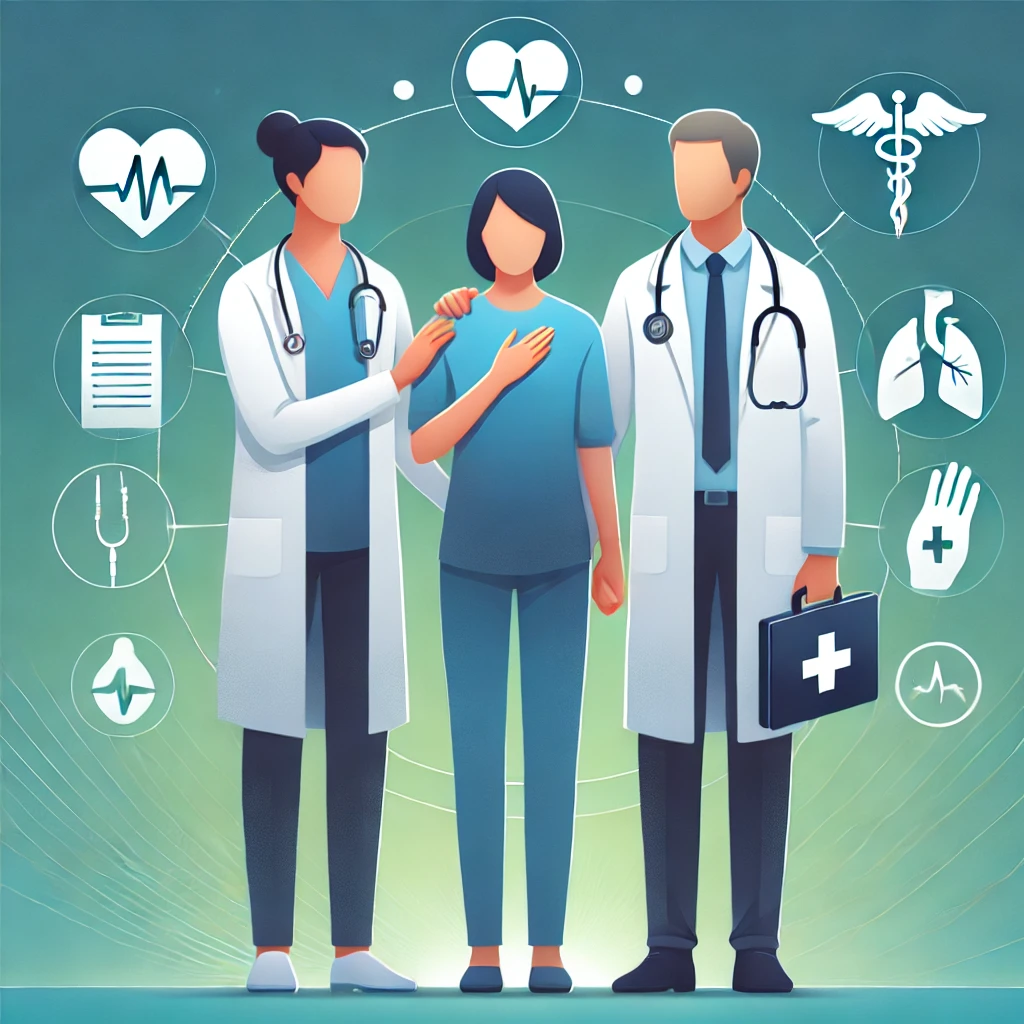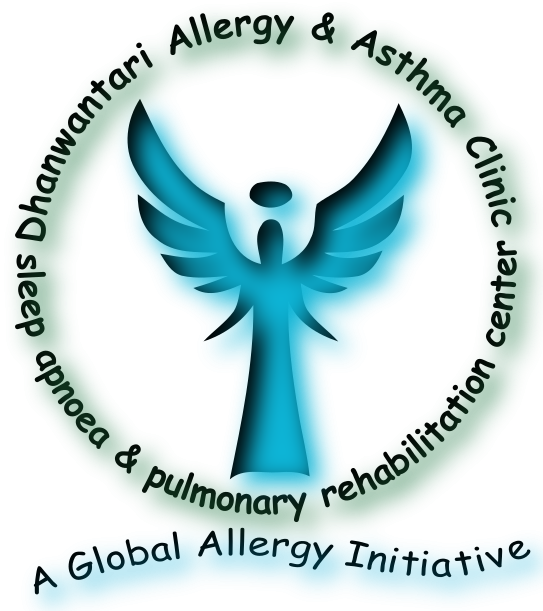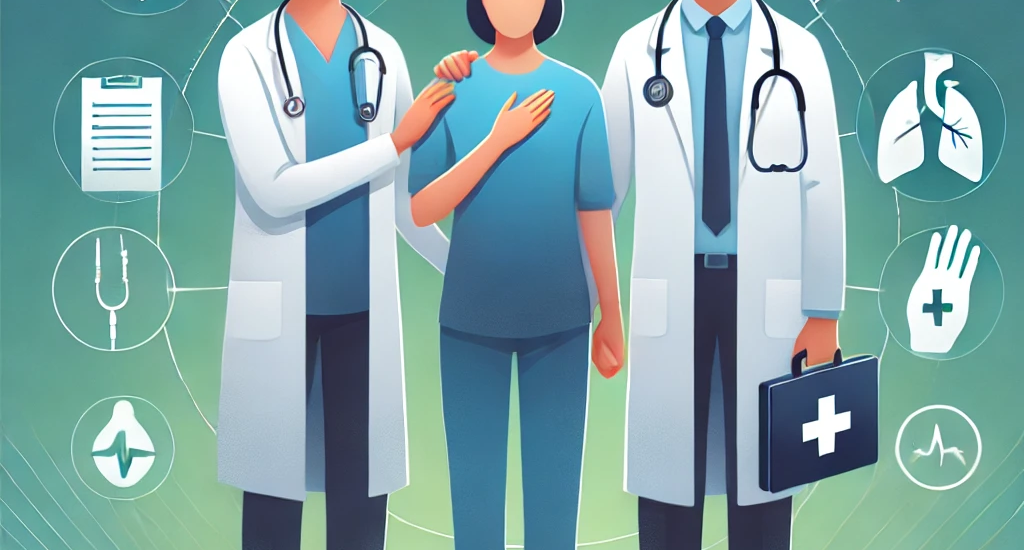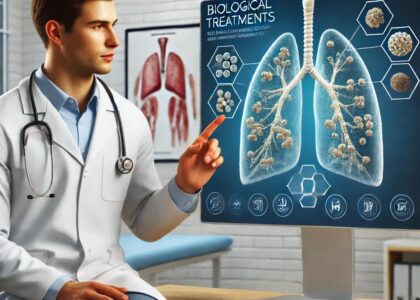“Caring for a loved one facing a health challenge is not just about providing emotional support; it’s about ensuring they receive the best possible care at the right time. Health issues, especially those involving vital organs, require a collaborative effort between caregivers, primary physicians, and specialists. Each plays a unique role—caregivers provide daily support and advocacy, general physicians identify and manage early signs, and specialists offer advanced expertise to protect and preserve critical organ function. Together, this team can make all the difference in a patient’s journey toward recovery and better health.”
Did you know that our vital organs—such as the heart, lungs, kidneys, and brain—contain specialized cells that have a limited ability to repair or regenerate? This makes it crucial to act quickly and seek the right care, involving both your primary physician and relevant specialists.
I will try to explain how different organs function, the roles of primary physicians and specialists, and how you can help protect your loved one’s health.
Vital Organs, Specialized Cells, and the Importance of Timely Care
Each vital organ performs specific functions using specialized cells. These cells are limited in number and often cannot regenerate once damaged. Here’s a look at these organs, their specialists, and why timely intervention is crucial:
1. Heart (Cardiologist):
• The heart relies on myocardial cells to pump blood. Damage to these cells, such as during a heart attack, is usually permanent.
• Role of Primary Physician: Identifies early signs of heart disease (e.g., chest pain, high blood pressure) and ensures timely referral to a cardiologist.
• Role of Cardiologist: Treats heart conditions like arrhythmias, heart attacks, and heart failure, preventing further damage.
2. Kidneys (Nephrologist):
• The kidneys filter toxins using nephrons, which are lost permanently when damaged by diseases like diabetes or hypertension.
• Role of Primary Physician: Manages chronic conditions like diabetes and high blood pressure to prevent kidney damage.
• Role of Nephrologist: Focuses on advanced kidney care, including dialysis or slowing kidney disease progression.
3. Brain (Neurologist):
• The brain depends on neurons to control thoughts, movement, and reflexes. Damage from strokes or trauma is often irreversible.
• Role of Primary Physician: Identifies early signs of neurological issues (e.g., sudden weakness or headaches) and provides initial stabilization.
• Role of Neurologist: Treats conditions like stroke, epilepsy, and degenerative diseases to preserve brain function.
4. Lungs (Pulmonologist or Allergist):
• The lungs depend on alveolar cells for oxygen exchange and cilia to protect airways. Chronic inflammation or damage can lead to lifelong breathing issues.
• Role of Primary Physician: Manages respiratory infections and mild breathing issues and refers patients for advanced care when necessary.
• Role of Allergist or Pulmonologist: Addresses chronic conditions like asthma, COPD, and allergies, protecting long-term lung health.
5. Liver (Hepatologist):
• The liver detoxifies the body and produces essential proteins. Damage from conditions like hepatitis or fatty liver disease can lead to failure.
• Role of Primary Physician: Monitors liver health during routine check-ups and identifies early warning signs.
• Role of Hepatologist: Treats advanced liver diseases, preventing irreversible damage.
6. Pancreas (Endocrinologist):
• The pancreas produces insulin and digestive enzymes. Damage to its cells can lead to diabetes or digestive disorders.
• Role of Primary Physician: Diagnoses and manages early diabetes, referring severe cases for specialized care.
• Role of Endocrinologist: Treats complex diabetes cases and hormonal imbalances.
7. Eyes (Ophthalmologist):
• Specialized cells in the retina enable vision. Damage from conditions like glaucoma or diabetes can cause blindness.
• Role of Primary Physician: Screens for vision problems and refers patients for advanced eye care.
• Role of Ophthalmologist: Manages conditions threatening eyesight, including surgeries if necessary.
8. Skin (Dermatologist):
• Skin cells protect against infections and environmental damage. Chronic issues like eczema can weaken this barrier.
• Role of Primary Physician: Treats minor skin conditions and infections.
• Role of Dermatologist: Manages chronic or severe skin issues, providing targeted therapies.
Why Both Primary Physicians and Specialists Are Essential
Primary physicians are often the first point of contact for most health concerns. They build long-term relationships with patients, understand their medical history, and manage overall health. However, when specific organs are affected, they refer patients to specialists for advanced care. Here’s why this collaboration is critical:
• Primary Physician’s Role:
• Early Detection: Identifies symptoms that could signal serious conditions, such as high blood pressure or shortness of breath.
• Preventive Care: Manages chronic conditions (e.g., diabetes, hypertension) to reduce the risk of organ damage.
• Coordination: Works with specialists to ensure seamless care for the patient.
• Specialist’s Role:
• Focused Expertise: Provides in-depth knowledge and advanced treatments for specific organ systems.
• Advanced Interventions: Uses specialized tools and therapies (e.g., angioplasty for heart attacks, immunotherapy for allergies).
• Long-Term Solutions: Helps prevent complications and preserve organ function over time.
Your Role as a Caregiver
As a caregiver, your support is invaluable in ensuring your loved one gets the best possible care. Here are some ways you can help:
1. Monitor Symptoms:
• Keep track of any changes in your loved one’s health, such as difficulty breathing, unusual swelling, or memory issues.
• Share these observations with their primary physician to guide treatment.
2. Encourage Timely Consultations:
• Ensure regular visits to the primary physician for routine check-ups and chronic disease management.
• If symptoms persist or worsen, advocate for a referral to the appropriate specialist.
3. Support Treatment Plans:
• Help manage medications, lifestyle changes, and follow-up appointments.
• Be proactive in asking questions and understanding the treatment plan.
4. Create a Safe Environment:
• For lung conditions, reduce exposure to allergens, smoke, or pollution at home.
• For heart or kidney conditions, encourage a healthy diet and moderate activity, as advised by the doctor.
5. Be Prepared for Emergencies:
• Know the warning signs of critical issues like heart attacks, strokes, or asthma attacks.
• Keep emergency contacts and medical records readily available.
Take Action Today
Caring for a loved one can be overwhelming, but remember that you’re not alone. By working closely with your primary physician and seeking specialist care when needed, you can help protect their vital organs and ensure a better quality of life.

If your loved one is struggling with breathing problems, allergies, or asthma, consulting an allergist or pulmonologist can make all the difference. Visit DrJha.in for more information or to book an appointment.
#BreatheFree #AllergyFree











